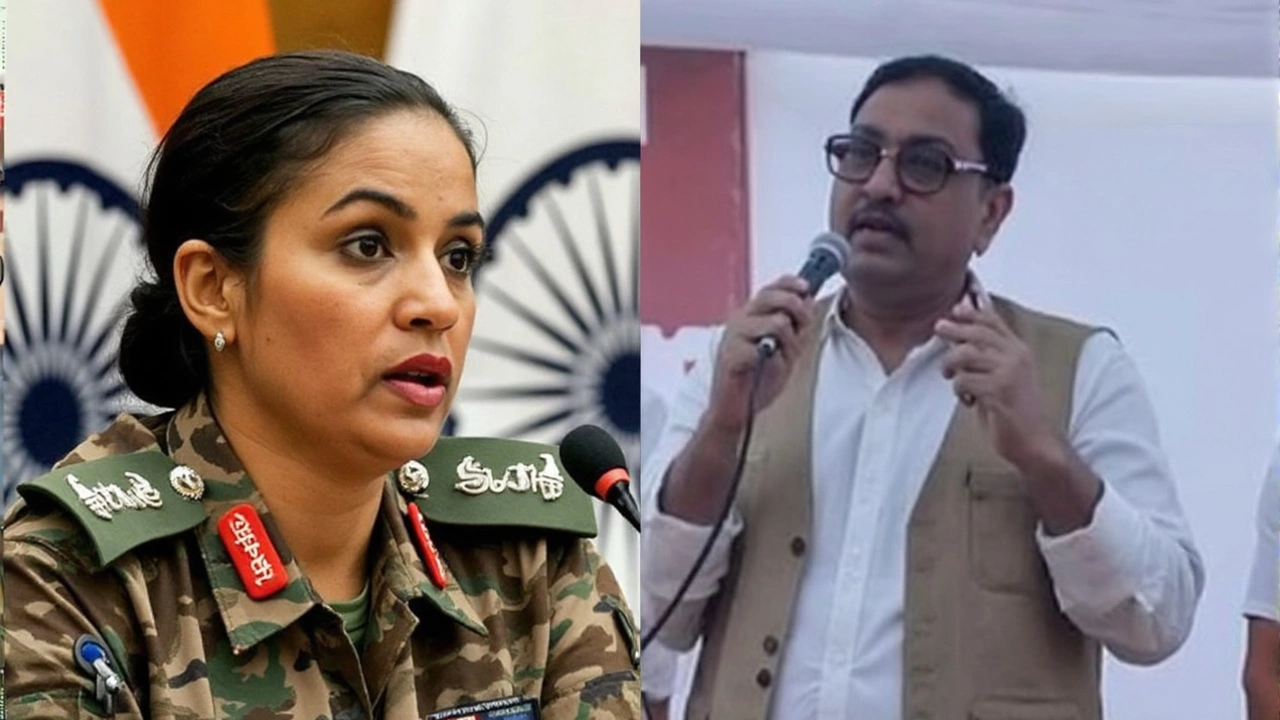Vijay Shah’s Comments Spark Outrage and Legal Scrutiny
Rarely does a minister’s speech send ripples through so many layers of society and government, but that’s exactly what happened after Madhya Pradesh’s Kunwar Vijay Shah made inflammatory remarks targeting Colonel Sofiya Qureshi, a highly respected Indian Army officer recognized for her service in Operation Sindoor. Addressing a crowd in Mhow on May 12, Shah crossed a red line, not just with his words but with their implications, when he referred to Colonel Qureshi as a 'terrorist’s sister' and oddly linked her Muslim identity with terrorism.
He didn’t stop there. Shah used sexually charged language, suggesting that the Prime Minister sent 'their community’s sisters' to fight extremists—remarks that instantly lit up opposition benches and civil society. The backlash was swift; organizations, veterans, women’s groups, and regular citizens condemned the rhetoric. Many found Shah’s outburst not just disrespectful, but dangerous, fueling existing divisions at a time when communities are already on edge.
The legal system jumped in quickly. The Jabalpur High Court called Shah’s words 'gutter language' and declared them 'dangerous,' especially because of how they could incite communal tension. The court ordered a police First Information Report against him—something not seen every day for a sitting minister. The Supreme Court didn’t let things cool off, either. They insisted the case be handled by a Special Investigation Team (SIT) led by a top police official, with a requirement for a woman police officer at the SP rank to be part of the inquiry. The SIT must file a status report by May 28, keeping the process in the spotlight.
Political Fallout and a Deafening Silence from BJP Leadership
Vijay Shah’s response has been a mix of apology and defiance. Facing nonstop criticism, he said he would 'apologize ten times' if anyone was offended, but that hasn’t slowed calls for his resignation. Opponents claim his remarks crossed the limits of political discourse, especially with an officer who has publicly represented the Army with dignity and professionalism. Colonel Sofiya Qureshi, widely known for breaking glass ceilings within the forces, suddenly became the focus of deeply communal commentary—a fact not lost on social and political observers.
All eyes have shifted to the BJP’s leadership. Despite mounting pressure, the party has held its tongue, issuing no public statements on possible disciplinary action. This silence has only ramped up speculation. Will they act swiftly to distance themselves from Shah, or ride out the storm quietly? Insiders say the party is weighing its options, aware that the controversy could affect support among both armed forces communities and minority groups—a risk no party wants to take lightly in a sensitive state.
The incident has definitely put a spotlight on how politicians’ words can have real-world consequences. Legal authorities aren’t waiting for partisan bickering to subside; the SIT investigation is already underway, signaling that the case won’t fade from the headlines soon. As the situation develops, many are watching for more than just disciplinary action—they’re questioning the tone and direction of public discourse itself, and what the fallout will mean for both the state government and the wider political landscape.
